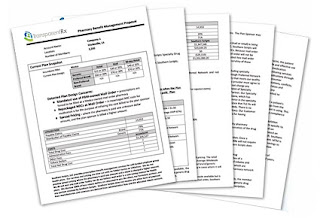The St. Louis company, now the largest manager of prescription-drug benefits in the U.S., projects profit of $6.31 to $6.43 a share, compared with its earlier view of $6.10 to $6.28 a share.
Meanwhile, for the current quarter, Express Scripts expects adjusted profit of $1.55 to $1.59 a share, compared with analysts’ projected $1.57 a share, according to Thomson Reuters.
 |
| Read: Suckers are Beneficial to “Traditional” Pharmacy Benefit Managers — They Cover the Overhead |
The company, which Monday affirmed its projection of 1.26 billion to 1.3 billion in adjusted claims for the year, projects 312 million to 322 million adjusted claims this quarter. Last year, it reported 321.2 million adjusted claims in the second quarter.
Over all, Express Scripts reported a profit of $526.1 million, or 81 cents a share, compared with $441.1 million, or 60 cents a share, a year earlier. Excluding certain items, profit rose to $1.22 a share, at the high-end of the company’s guidance.
Revenue declined 0.4% $24.79 billion, compared with analysts’ projected $25.20 billion, largely tied to Anthem revenue. Adjusted claims rose 5% to 323.5 million, within the company’s range of 315 million to 325 million.
Tyrone’s comment: According to my calculations, Express Scripts generated $76.63 (24.79b / 323.5m) in revenue per claim! This is absurd. Naysayers and homers will justify this number by saying things like, “Express Scripts generates revenue from sources other than prescriptions.” To this I say, “so what!” One performance metric every PBM uses is revenue per claim. If you’re generating so much cash from investment activities why excessively mark-up mail-order prescriptions, for example.
Since the DOD and Anthem are its largest customers and likely pay less, per claim, than say a mid-size employer, my guess is that the per claim revenue for smaller clients is closer to $100 per claim. How does the $76.63 per claim thus inevitable overpayments from plan sponsors happen? In short, much of the revenue is generated from hidden cash flows.
Note: Adjusted claims account for monthly prescriptions filled in retail pharmacies and 90-day fills through the company’s mail-order business.